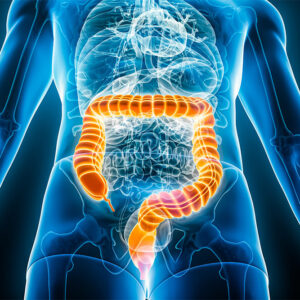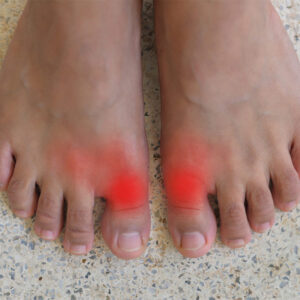
Popular Drug SKYROCKETING Your Dementia Risk?!
Dear Reader,
When you go to your doctor with a problem you expect to be given a cure… or, at best, at least a treatment that will make your problem manageable.
What you don’t expect is for this drug to open a can of worms for other health troubles. But that’s exactly what could happen if you suffer with anything from COPD, overactive bladder, asthma, Parkinson’s, diarrhea and even depression.
Because while this one type of drug is given to “treat” all of the issues I’ve listed above – it’s also sending your risk for dementia skyrocketing.
Here’s what you need to know.
Anticholinergic medications are WIDELY prescribed medications.
They are also at the top of my list of drugs you should not take unless you absolutely HAVE to. And that’s especially the case if you’re older.
Anticholinergic drugs are a big class of drugs (they do a lot of different things in your body). They work by decreasing the action of a brain chemical (neurotransmitter) in the brain, called acetylcholine.
Acetylcholine is needed for a specific set of nerves to work. Blocking acetylcholine typically calms down (or inhibits) many involuntary muscles movements and various other bodily functions.
Here is the list of drugs that are considered anticholinergic:
- Antihistamines (first-generation)
- Antiparkinsonian Agents
- Skeletal Muscle Relaxants
- Antiarrhythmics (for irregular heartbeats)
- Antidepressants (amitriptyline, clomipramine, doxepin, imipramine…)
- Antimuscarinics (for urinary incontinence)
- Antipsychotics (chlorpromazine, clozapine, loxapine….)
- Antispasmodics (used to calm muscles)
Anticholinergic drugs decrease the ability of the liver and kidney to break down and get rid of toxins. They also increase the permeability of the blood-brain barrier – which allows more drugs across into the brain (not a good thing).
They also increase drowsiness, dizziness, blurred vision, hallucinations… and much more.
Oh… and they increase your risk of dementia.
A new study, published in the Journal of the American Medical Association Internal Medicine, collected data from 3,434 adults who were followed for eight years they found that taking these drugs greatly increased the risk for dementia.
But if they’re wrecking one of your brain, why is your doctor handing you a prescription?
The short (and ugly) answer is: your mainstream medical doctor has nothing else to give you.
If you suffer from asthma, Parkinson’s, diarrhea, or even depression, these are some of the only drugs that will supposedly “treat” your symptoms.
A second, much larger study, of 58,769 participants found significant INCREASES in dementia risk associated with the use of anticholinergic antidepressants, anti-parkinsonian drugs, antipsychotics, anti-muscarinic drugs and antiepileptic drugs.
And here is the biggest problem: the risk for dementia with anticholinergics remains even after drug is stopped.
The takeaway: be careful whenever you decide to take a drug especially when it comes to these drugs and even MORE especially if you are older. If you suffer from one of the ailments that call for an anticholinergic, talk to your doctor about your options and make sure you exhaust your resources.
Written By Dr. Scott Olson, ND
Nearly 25 years ago, failed mainstream medical treatments left Dr. Olson in constant pain – and his health in ruins. And that’s when he did something REVOLUTIONARY. He began his career in medicine – and dedicated his life to uncovering the true, underlying causes of disease.
Through his innovative medical practices in Tennessee and Colorado, Dr. Olson has helped cure countless seniors from across America of arthritis… heart disease… diabetes… and even cancer. All without risky prescription drugs or painful surgeries.
View More Free Articles
Discover WHY We Accidentally Overeat (and How to Stop)
Picture this… You finish eating a nice meal feeling just fine. But then, 20 minutes later, you’re groaning and clutching your belly because you feel uncomfortably stuffed. If this sounds familiar, you’re in good company. Most of us have had this happen. Science reveals why accidental overeating occurs… and what we can do to avoid...
Find Exercise Exhausting and Painful? Try THIS Natural Fix
If you’ve heard it once, you’ve heard it a thousand times: “You need to exercise.” And sure, you know how vital it is to healthy aging. But let’s be honest, sometimes it feels nearly impossible to get moving—especially when you know you’ll be sore for DAYS after. However, hold on to your seat because I’ve...
Mailbag: Unsteady on Your Feet? Now What?
“I’ve been having trouble with my balance lately and have fallen a couple of times. Could this be related to osteoporosis or another underlying cause?” – John Hi John, It’s always concerning when someone experiences balance issues or falls. While osteoporosis can contribute to an increased risk of falling, several other underlying causes should also...
Is There Really a Hidden Benefit to BROCCOLI?
Just when we thought broccoli’s resume couldn’t get any more impressive, new research proves us wrong. The phytonutrients in this tasty veggie can lower inflammation… balance blood sugar… and even boost your memory. And you likely already know of broccoli’s legendary prowess in preventing cancer. Now, a new study reveals that sulforaphane, the potent compound...
Belly Trick BOOSTS Brain Function
Boy do I love a cheap and easy solution. And if you can’t resist a good bargain either, keep reading. Because I have a brain-boosting one to share that fits the bill. If you’re like most folks, you intend to stay as sharp as a tack well into your golden years. So, you’re always on...
The Hidden Heart Danger LURKING in Your Gut?
Dear Living Well Daily Reader, Living with inflammatory bowel disease (IBD) is no walk in the park. The cramping, the urgency, the endless trips to the bathroom—it’s a daily struggle that can leave you exhausted and frustrated. And here’s the kicker: sometimes, IBD’s vague symptoms can lead to misdiagnosis or even NO diagnosis at all....
Has the Key to Unlocking Better MS Treatments Been Found?
Dear Living Well Daily Reader, Imagine waking up one morning and feeling a strange tingling in your fingers. You brush it off, thinking it’s just a pinched nerve. But then, your vision starts to blur, and your balance is thrown off. Suddenly, you’re faced with a terrifying reality: you have multiple sclerosis (MS). For the...
6 Secret Ways to Spot HIDDEN Processed Foods
“Avoid eating processed foods,”—If I’ve said it once, I’ve said it a thousand times. The reason why is simple. These Frankenfoods are designed to satisfy your taste buds. But they leave your body full of foreign chemicals that can cause harm and in need of more nutrients. But a patient asked me the other day,...
8 Red Flags There’s a Heart Attack in YOUR Future
Humor me and count to 40. Done? According to the Centers for Disease Control and Prevention (CDC), someone in the United States just had a heart attack. That adds up to around 805,000 people a year. Many of those were a “silent” heart attack, with the victim having no clue it even happened—and they go...
Mailbag! Neuropathy Pain? Ease Tingling in Hands and Feet
“I’m diabetic and have burning, tingling pain in my feet. My doctor says it is peripheral neuropathy, and there aren’t any cures. But do you have any tips to help me deal with it?” —Hank Hi Hank, Uncontrolled blood sugar can trigger nerve pain called peripheral neuropathy. This condition causes pain and numbness, usually in...









